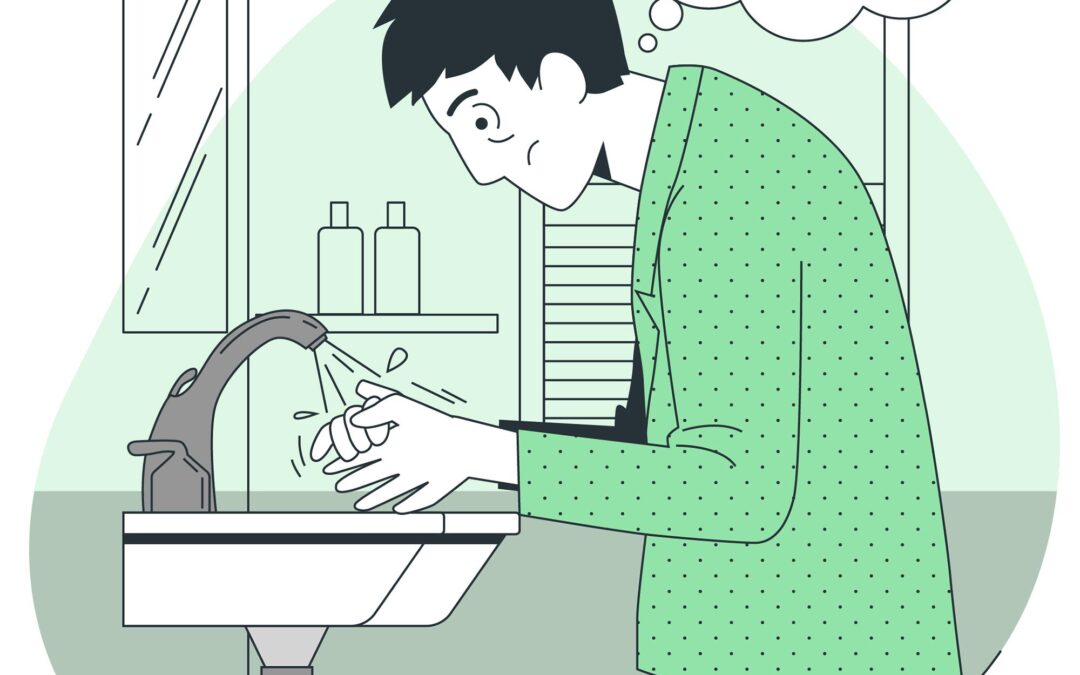Key Points:
- OCD symptoms may include intrusive thoughts and compulsive behaviors that can disrupt one’s daily life and cause distress.
- Identifying the triggers of OCD is crucial to determine what sparks it and how to better manage and cope with the disorder.
- OCD can stem from trauma, personality traits, genetics, and brain chemistry.
- Symptoms can be managed through self-care, therapy, and various treatment options.
Obsessive-Compulsive Disorder (OCD) can have a significant impact on a person’s daily life, making even routine tasks feel overwhelming. People with OCD often experience obsessions in the form of intrusive thoughts, pictures, or urges that cause significant anxiety and distress. When a sufferer needs to relieve this distress, they may engage in compulsions, repetitive behaviors, or mental acts as an effort to reduce anxiety or stop a feared outcome. These compulsions can prevent them from moving through their days freely and create a cycle or habit that is difficult to break.
While these behaviors may provide temporary relief, when they become repetitive, they usually reinforce the cycle of OCD and result in making symptoms stronger over time. This can lead to exhaustion, more stress, and anxiety. Without proper management, OCD can interfere with work, relationships, and overall well-being.
What Causes OCD?
OCD can develop for different reasons, and while it varies from person to person, certain common triggers can play a role in its development and its severity. These triggers can come from life experiences, stress, or even genetics, which shape how OCD shows up in someone’s life. Some common triggers of OCD include:
- Experiencing a traumatic event: A person may develop OCD as a result of difficult childhood experiences such as abuse or bullying, having a parent with OCD-related anxieties and compulsive behaviors, ongoing stress or anxiety, or significant life changes like pregnancy or childbirth. Theories show that in many cases, OCD develops as a coping mechanism or a response to mental health challenges.
- Personality type: Sometimes, people who are naturally neat, detail-oriented, or highly organized may develop OCD.
- Biology: While it’s not fully understood how genetics and brain functions affect OCD, some theories suggest it may be linked to low serotonin levels.
Common OCD Behaviors:
- Excessive handwashing
- Checking locks, lights, or appliances repeatedly
- Arranging objects in a very specific way
- Repeating words, numbers, or phrases in your head or out loud
- Constantly seeking reassurance
- Counting steps, objects, or actions in hopes to prevent something bad from happening
- Hoarding items which can stem from fear of needing them later
OCD Management: Self-Care and Treatment Options
One of the most important things to consider when dealing with OCD is its effect on your mental health. While OCD triggers aren’t necessarily something you can control, there are ways to cope with your condition through effective management.
- Connect with others: Whether you reach out to close friends and family or attend a support group for people with OCD, spending time with those who understand you can help with OCD management.
- Take care of your body to take care of your mind: Getting enough sleep, exercising, and maintaining a healthy diet can make a big difference when dealing with OCD symptoms. Being well-rested and eating well can help balance your mood and energy levels, which has a lasting impact on mental health.
- Try self-help strategies: Self-help resources like websites and books can provide tools to manage OCD symptoms. Many are based on cognitive behavioral therapy (CBT), which is known to be effective for many people.
- Consider ketamine therapy: Research shows that ketamine therapy offers quick relief from OCD symptoms by reducing impulsive behaviors and breaking the obsessive thought pattern. It works by targeting specific brain receptors which disrupts the obsessive thought loops.
Most importantly, don’t be afraid to ask for help and seek professional treatment if managing OCD feels overwhelming. There are many resources available to help people with OCD overcome their symptoms and achieve positive mental health.
Contact Bluewater Psychiatry
If you or a loved one are struggling with the OCD, contact Bluewater Psychiatry for professional help.

